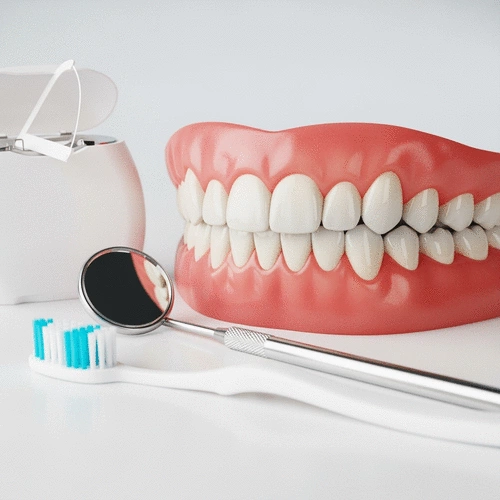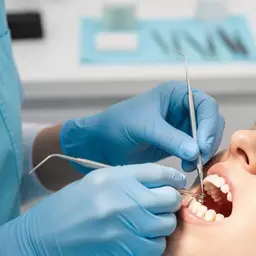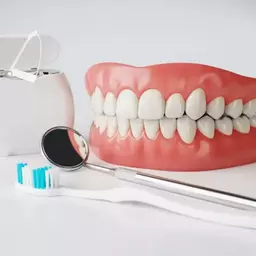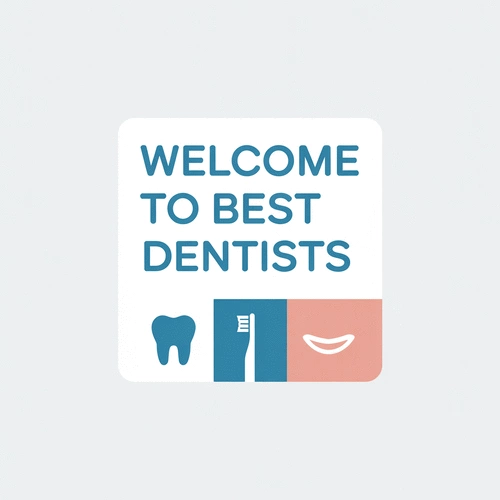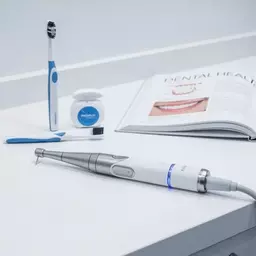Have you ever considered that the health of your gums could impact your overall well-being? Early detection of gum disease is crucial, but many overlook the signs. Understanding these indicators can empower you to take charge of your dental health and prevent serious complications. Let’s explore the essentials of gum disease awareness!
What You Will Learn
- Gum disease starts with gingivitis and can progress to periodontitis if untreated.
- Key early signs of gum disease include bleeding gums, persistent bad breath, and swollen gums.
- Gum recession can expose tooth roots, increasing sensitivity and decay risk.
- Maintaining good oral hygiene is essential to prevent bacteria buildup that leads to gum disease.
- Early detection allows for less invasive treatment options and can save you money in the long run.
- A balanced diet rich in vitamins and minerals supports gum health and overall well-being.
- Regular dental check-ups are key to catching potential issues before they develop into serious problems.
Understanding Gum Disease: Key Stages and Early Signs
This visual outlines the progression of gum disease from early inflammation to severe stages and highlights crucial early warning signs for timely intervention.
Stages of Gum Disease
Gingivitis: Early inflammation, reversible with good hygiene.
Periodontitis: Severe stage, affects bone supporting teeth.
Chronic: Long-term disease, requires extensive treatment.
Early Warning Signs
-
✓
Bleeding gums when brushing or flossing.
-
✓
Persistent bad breath that won’t go away.
-
✓
Swollen, red, or tender gums.
-
✓
Changes in your bite or denture fit.
-
✓
Gum recession (teeth appearing longer).
Understanding Gum Disease: Key Signs You Should Never Ignore
As a dental professional, I often encounter patients who are unaware of the early signs of gum disease. Understanding this condition is essential for maintaining your oral health and preventing serious complications down the road. In this section, we'll dive into what gum disease is, its early warning signs, and why addressing them promptly is crucial to your overall well-being.
Defining Gum Disease: What You Need to Know
Gum disease, also known as periodontal disease, is an infection of the gum tissues surrounding your teeth. It usually starts with gingivitis, where the gums become inflamed due to plaque buildup. If left untreated, it can progress to periodontitis, leading to tooth loss and other serious health issues. Understanding these stages can empower you to take action before it’s too late! For more insights into maintaining excellent oral health, consider exploring oral health and overall wellness.
- Gingivitis: Early inflammation reversible with good oral hygiene.
- Periodontitis: More severe stage affecting the bone supporting your teeth.
- Chronic Periodontitis: Long-term disease that may require extensive treatment.
Regular check-ups at Best Dentists can help you catch these stages early, ensuring you don’t face the devastating effects of advanced gum disease.
Recognizing Early Signs of Gum Disease
Identifying the early signs of gum disease can make a significant difference in treatment options. Remember, the sooner you notice these symptoms, the sooner you can seek help. Here are some common signs that should never be ignored:
Common Symptoms: From Bleeding Gums to Bad Breath
- Bleeding gums when brushing or flossing.
- Persistent bad breath that won’t go away.
- Swollen, red, or tender gums.
- Changes in your bite or the fit of dentures.
If you notice any of these symptoms, it’s important to schedule an appointment with us at Best Dentists. Ignoring them can lead to more severe health complications.
Identifying Gum Recession and Its Implications
Gum recession is another critical factor to be aware of. This condition occurs when the gum tissue pulls away from the teeth, exposing the roots. Not only can this lead to sensitivity, but it also increases the risk of decay and loss of teeth. If you see more of your tooth than usual, it’s time to take action!
The Role of Oral Bacteria in Gum Disease Development
Did you know that bacteria play a significant role in the onset of gum disease? These microorganisms thrive in the plaque that builds up on your teeth. If not removed, they can cause inflammation and damage to the gum tissue. Maintaining good oral hygiene is key to keeping these bacteria at bay and ensuring your gums stay healthy. You can find excellent tips for prevention and care in our post on daily dental hygiene tips.
The Critical Importance of Early Detection in Gum Health
When it comes to gum disease, early detection is paramount. By recognizing the signs and seeking treatment promptly, you can prevent long-term damage to your oral health.
Why Early Detection Matters: Preventing Long-Term Damage
Early detection of gum disease can save your teeth and your health. It allows for less invasive treatment options and can significantly reduce the risk of complications. Here’s what to consider:
- Timely intervention often leads to improved treatment outcomes.
- It can save you money on more extensive procedures down the line.
- Healthy gums contribute to overall better health.
At Best Dentists, we believe in empowering our patients with knowledge and resources to act quickly on their gum health. Don’t wait until it’s too late!
We Want to Hear From You!
Have you ever experienced any early signs of gum disease? What steps did you take to address them? Share your thoughts below:
Taking Action: Your Path to Healthier Gums
Taking charge of your gum health is crucial to maintaining a beautiful smile! At Best Dentists, we believe in empowering you with the right tools to assess your oral health. So, let's explore how to conduct a self-assessment for gum disease and recognize when it’s time to seek professional help.
How to Conduct a Self-Assessment for Gum Disease
It’s easier than you think to keep track of your gum health from the comfort of your home! Here’s a simple checklist of early signs to monitor:
- Are your gums red or swollen?
- Do you experience bleeding when brushing or flossing?
- Is there persistent bad breath or a bad taste in your mouth?
- Have you noticed any recession of your gums or teeth appearing longer?
Being aware of these signs can help you catch potential issues early. Remember, your gums should be firm and pink, not tender or bleeding. If you notice any changes, take note of them!
Checklist of Early Signs to Monitor at Home
To help you further, here’s a quick self-assessment checklist:
- Check for bleeding when you brush.
- Observe gum color—should be pink!
- Notice any changes in gum shape.
- Look for any pus or discharge around your gums.
This checklist can serve as a valuable guide to help you stay aware of your gum health. If you find any concerning signs, don’t hesitate to reach out!
When to Seek Professional Help: Recognizing Urgent Symptoms
Knowing when to contact a dental professional can make all the difference! If you experience any of the following symptoms, it's time to seek help:
- Severe gum bleeding.
- Persistent pain or discomfort in your gums.
- Gums that feel warm to the touch or appear infected.
- Teeth that are becoming loose.
At Best Dentists, we’re here for you when you need us most. Early intervention is key, and addressing these symptoms promptly can save you from more complex treatments down the line!
Building a Sustainable Oral Care Routine
A sustainable oral care routine is essential for maintaining gum health. This means not only brushing and flossing but also nourishing your body. Let's look at some practical steps you can take for everyday gum health!
Practical Steps for Everyday Gum Health
Incorporating the right nutrients into your diet can significantly improve your gum health. Vitamins and minerals play a vital role in strengthening your gums. Here are some recommendations:
- Vitamin C: Helps in the repair of gum tissue.
- Calcium: Supports the structure of your teeth and bones.
- Omega-3 fatty acids: Can help reduce inflammation in your gums.
Adding these to your meals can be as simple as snacking on fruits like oranges or adding leafy greens to your salad! Just remember, a balanced diet plays an essential role in your overall oral health. For options to restore your dental health, consider exploring choosing your restorative dental options.
Encouraging Regular Monitoring and Follow-Up Care
Establishing a routine for regular check-ups is key to proactive care. At Best Dentists, we recommend scheduling your dental visits at least every six months. Consistent follow-up can help catch any issues before they develop into more serious problems. Think of it as a health investment for your smile!
FAQs About Gum Disease
Here are some frequently asked questions to help you better understand gum disease and its prevention.
- What are the earliest signs of gum disease?
- The earliest signs of gum disease, known as gingivitis, include bleeding gums when brushing or flossing, persistent bad breath, and swollen, red, or tender gums.
- Can gum disease be reversed?
- Gingivitis, the early stage of gum disease, is often reversible with good oral hygiene practices and professional dental cleanings. However, more advanced stages like periodontitis require extensive treatment and may not be fully reversible, though progression can be managed.
- How does gum recession affect my teeth?
- Gum recession exposes the tooth roots, which can lead to increased tooth sensitivity, a higher risk of cavities on the root surfaces, and a less aesthetic appearance (teeth appearing longer). If left untreated, it can also contribute to tooth loss.
- What role do bacteria play in gum disease?
- Bacteria in plaque buildup on your teeth are the primary cause of gum disease. These bacteria produce toxins that irritate and inflame the gum tissue, leading to gingivitis. If not removed, they can spread and cause more severe damage to the supporting bone structure.
- Why is early detection of gum disease so important?
- Early detection is crucial because it allows for less invasive and more effective treatment options. Catching gum disease in its early stages can prevent it from progressing to more severe forms that can lead to tooth loss and may have links to other systemic health issues.
Join the Conversation: Share Your Experiences
Engaging with our community can also foster a culture of awareness and support. Have you ever faced gum issues and found a solution? Sharing your story can inspire others to take their oral health seriously!
Patient Testimonials: Success Stories of Early Intervention
Hearing from others can be motivating! Consider how early detection and treatment have transformed lives. At Best Dentists, we often share success stories from patients who took action early and improved their gum health.
Expert Opinions: Insights from Dental Professionals
We also encourage insights from dental professionals to highlight the importance of regular care. Their expertise can provide valuable perspectives on maintaining gum health and the latest advancements in dental care.
Final Thoughts on Gum Disease Awareness and Prevention
Understanding gum health is vital for everyone. By being proactive and informed, you are taking the right steps to protect your smile! Remember, at Best Dentists, we’re always here to support you.
Summarizing the Importance of Understanding Gum Health
Gum disease is preventable with the right knowledge and habits. Don’t overlook the small signs, and prioritize your gum health!
Call to Action: Schedule Your Next Dental Appointment Today
If it’s been a while since your last visit, now’s the time! Schedule your next dental appointment with Best Dentists today and take a significant step toward ensuring your gums stay healthy and vibrant!
Recap of Key Points
Here is a quick recap of the important points discussed in the article:
- Gum disease starts with gingivitis, which can be reversed with proper oral hygiene.
- Common early signs of gum disease include bleeding gums, bad breath, and swollen gums.
- Gum recession can expose tooth roots and increase sensitivity, requiring prompt attention.
- Maintaining good oral hygiene helps control harmful bacteria that cause gum disease.
- Early detection can lead to less invasive treatments and better health outcomes.
- Regular dental check-ups are crucial for monitoring and maintaining gum health.
- A balanced diet rich in vitamins C, calcium, and omega-3 fatty acids supports healthy gums.

